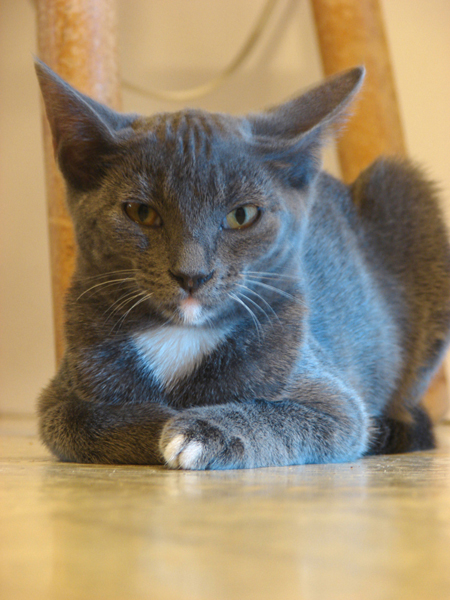Biting
I’m sure you’ll agree, Charlotte...
Life with your furry best friend is never dull.
In fact, your cat “talks to you” in dozens of ways every day, with their own
feline language.
Today, I want to talk about one “feline communication” that’s often
misunderstood: biting.
I don’t mean aggressive biting behavior…
I’m talking about the occasional little bite your adult cat might give you
while you’re petting them, playing, or just snuggling on the sofa together.
Some people call these “love bites,” but actually, cats use this behavior to
express several emotions… and not all of them are positive.
Also, this behavior can be a problem if your cat doesn't know how to be gentle
— they can accidentally scratch or even puncture the skin with their teeth.
So, to help you decode your cat’s nibbling behaviors, here’s a quick breakdown
of what this “feline expression” generally means…
And how to teach your kitty to be as gentle and polite as possible with those
“little love bites.”
What’s the deal with kitty “love bites”?
#1. Your cat is showing their love.
These quick, non-aggressive nibbles are one way that cats will show affection
and groom each other.
So sometimes, when your cat gives you a little nibble, it simply means they
love you. (And, they’re probably hoping you’ll return the favor and give them
scratches!)
Tip: Say “ouch” in a loud voice. Even if the bite doesn’t hurt that much, your
loud, dramatic response will help your cat understand: They’re being too rough.
And since the last thing your cat wants is to harm you, if you remember to say
“ouch” every time they bite too hard…
Your kitty can soon learn the limit of how rough they can be with you.
#2. Your cat has pent up energy and wants to play.
Sometimes your cat will give you a little bite to get your attention.
They learn this in kittenhood as a non-threatening way to get their mother’s
attention, or another cat’s attention for playtime.
Tip: Always be sure your cat is getting plenty of playtime and exercise
everyday. Have a set time every day when you play with your cat.
They’ll quickly learn your schedule and be less likely to ask to play at other
times of the day.
If you’re not sure how much exercise your kitty needs, give your veterinarian a
call. They can give you a recommendation based on your cat’s unique needs.
#3. Your cat is nervous or uncomfortable.
Some cats will bite their parents when they are feeling uneasy.
It can be a nervous reaction that helps release “happy hormones” in their
brain…
Or, it can be your cat’s way of telling you, however you’re petting them or
holding them is uncomfortable.
Tip: The next time your kitty gets carried away and bites too hard, say “ouch”
and turn away from them, so they know it hurts you.
Then, do a quick scan of yourself and your surroundings for anything that could
be making your cat uncomfortable or nervous.
When you can identify the stressor and help remove it from your cat’s vicinity,
you can help your kitty feel calmer.
So as you can see, biting behavior is usually quite innocent…
It’s just one more way your cat is trying to “talk” with you. That’s why you
should never punish your cat for biting in a non-aggressive way.
Instead, help them learn to be gentler and more considerate of you and their
other human family.
All it takes is a little patience to clear up your communication…
And then you and your cat can be happier and have a stronger bondthan
ever.
To you and your best friend,
Dr. Marty



Comments
Post a Comment